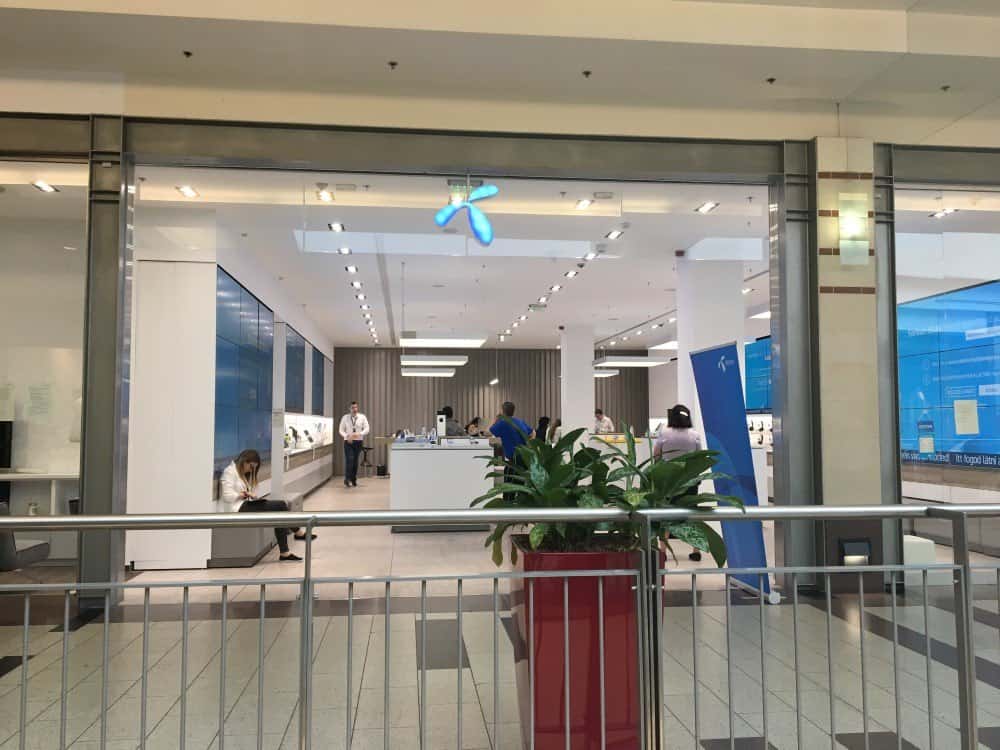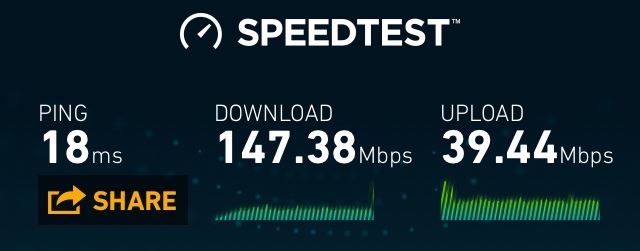Buying a SIM Card or eSIM in Hungary
We may earn a commission from purchases you make after clicking links on this site. Learn more.Hungary has grown more popular with tourists in recent years, attractive to both backpackers and those with a few more forint in their wallets. While tourism is picking up across the country, Budapest is still where most travelers spend their time.
A city of 1.7 million, the capital is both lively and beautiful, as famous for its “ruin pub” nightlife as its sophisticated wine and cocktail scene.
When the sun comes up, Budapest has plenty to keep you busy, from hikes in the Buda hills to spa baths across the city and a range of museums and historical sites. Besides the wealth of things to do, Hungary is popular for its prices, far lower than in Western European cities.
Staying connected with a local SIM card is very affordable, but can be very time-consuming to get set up. SIM registration requirements in Hungary are onerous, to say the least, requiring official ID, a lot of paperwork, and plenty of patience.
As a result, I now recommend most people just use a travel eSIM instead. You can get set up in a couple of minutes before leaving home, prices are comparable unless you need a lot of data, and you’re good to go as soon as you arrive in the country.
Here’s what you need to know.
Companies
There are three cell networks in Hungary: Magyar Telekom, Yettel, and Vodafone.
While there are several resellers as well, they require registration by phone in Hungarian and a follow-up letter to a Hungarian address. As a result, the providers listed above are the only viable options for travelers.
Magyar Telekom has the largest market share in Hungary. It has the best LTE coverage, servicing almost the entire population. Within the capital and other large cities, Yettel and Telenor both have good service.
Vodafone has the least coverage of the three main carriers, and while I’ve used it on past visits to Budapest, I now go for Yettel due to better coverage and value. Vodafone also has a reputation for being difficult for non-resident foreigners to deal with.
I chose Yettel over Magyar Telekom because of the companies’ customer service reputation, and slightly lower pricing when I bought it.
Travel eSIM for Hungary
Given the challenges around registering SIM cards in Hungary, I now suggest visitors just use a travel eSIM instead. It’s what I tend to do in most of the world these days anyway, and especially anywhere that makes it hard to buy physical SIMs.
Prices are pretty similar, typically within a couple of dollars either way, and because you can get set up at home and just switch it on when you arrive, it saves so much time and effort that I’d rather spend doing, well, anything else.
Airalo and aloSIM‘s prices tend to be the best, and very similar to each other: I’ve used both companies around the world and never had a problem with either, so just go with whichever has the best price on the day.
Need travel insurance for Hungary?
Need travel insurance for Hungary?
Like most travel eSIMs, they’re data-only: you don’t get a local number. I use apps for everything from communication to transport these days, so the lack of a local number very rarely matters to me, but you might have different needs.
One thing worth noting: if you’re planning to travel to several European countries within a few weeks, it might be worth looking at some of the regional eSIM packages on offer.
There are too many to list each one separately (and they change all the time), but as a starting point, these are the Europe eSIM options from companies I’d actually consider using:
- aloSIM (34 countries)
- Airalo (39 countries)
- Nomad (30-35 countries)
- SIMOptions (29-39 countries)
- yeSIM (31 countries)
- easySIM (36 countries – free with any single-country eSIM)
If you’re new to eSIMs, they offer big benefits to travelers in terms of how quickly, easily, and (often) cheaply you can get connected when you arrive in a new country. Most recent phones support them, and you can read all about them here.
How to Buy a Prepaid SIM Card in Hungary
Vodafone used to be the only provider offering SIMs at Budapest airport, but post-pandemic, the store there no longer exists. It was pretty expensive anyway, but now unless you’re using a travel eSIM (below), you’ll need to wait to be connected until you reach the city.
Getting from the airport to the city without data service is easy enough if you use the miniBud shuttle, which you can arrange on arrival in the arrivals hall. Public transport is also fairly straightforward, but requires a transfer.
The transportation desk at Budapest airport can sell you tickets and offer instructions for getting to the city via public transport.
If you’re arriving in Budapest by train, the Arena Plaza shopping mall is about a 10-minute walk from Keleti pályaudvar train station. It has Yettel, Magyar Telekom, and Vodafone shops.

If you’re arriving by air and decide to buy your SIM in the city, I recommend going to WestEnd City Centre in Budapest.
This large shopping mall is attached to Nyugati pályaudvar train station, and connected to public transport via metro and the 4/6 trams. It has stores for all three phone companies mentioned earlier.
At all of these shops, there will likely be a staff member who speaks English and is able to help you. You’ll be able to pay with cash, a PIN-enabled card, and (often) contactless debit or credit cards.
Purchasing a SIM card will take about 30 minutes due to the paperwork required. While it’s not difficult, anti-terrorism legislation increased the information required to get a SIM from 2017 onward, so it takes longer than it used to.
You will need to provide photo identification, such as a passport or ID card, and sign a bit of paperwork. You may also be required to provide a Hungarian address, so be sure to note down your hotel/apartment details beforehand.
Prepaid SIM and eSIM Costs
Yettel
As I say, I went with Yettel. If you mostly need data, a SIM and 1GB data package costs HUF 1100 ($3), valid for 30 days. The 3GB version costs HUF 2500 (~$7), while 5GB costs HUF 3300 (~$9.50) with 25 minutes of domestic calls included.
You’ll pay HUF 25 per minute or text on the smaller plans, or after you use up the allowance on the larger plan. Current plans and prices are on the English version of Yettel’s website.
Magyar Telekom
Telekom typically has similar pricing to Yettel, but there are a few more prepaid options available on the English version of its website. You can buy 1GB of data that doesn’t have an expiry date for HUF 1550 (~$4.50), or 5GB for HUF 3990 (~$11.50).
Limited and unlimited data packs valid for a few days are also an option, if you’re only visiting for a long weekend.
Vodafone
With Vodafone, you get a SIM with nothing except 100MB of free data on it, and then add whatever call, text, and data packs you want. 5GB of data is HUF 3590, for instance, valid for a month. You can find all the current options here (Hungarian).
aloSIM and Airalo
As you can see in the table below, when it comes to travel eSIMs, aloSIM and Airalo typically have near-identical pricing. They’re pretty similar to what you’ll get from e.g. Yettel, but without any of the (significant) registration and purchase hassle.
There are other options, of course, and we’ve compared many of the better ones in the past. Nomad is usually a bit more expensive for smaller data packs in Hungary, but a bit cheaper for large ones.
Topping Up
Topping up is very easy, certainly far more so than buying and registering in the first place.
There are several ways to do it, including simply returning to the telecom shop where you purchased the SIM card, giving them your phone number, and letting them know how much you want to top-up.

Alternatively, all three major providers also offer online top-up options. It may not work with all international credit cards, but I’ve never had a problem paying bills or completing top-ups online when using one.
Yettel has online top-up here, Telekom’s version is here, and Vodafone’s is here.
You can also purchase top-up cards at news kiosks (such as Relay), gas/petrol stations, and post offices. It’s often harder to find English-speaking staff in these shops, however.
Get regular updates from the world of travel tech and remote work
News, reviews, recommendations and more, from here and around the web
Coverage and Data Speeds
Coverage is excellent in Budapest and every city we’ve visited outside of the capital. Data speeds are generally extremely fast.
Within Budapest, I get speeds of 147Mbps download and 39Mbps upload. I’ve had similar coverage in Pest, in the south, and have been told speeds are much the same in other cities.
I’ve experienced reduced coverage on train trips, including temporary black spots that haven’t lasted more than 15 minutes. The problem you’re more likely to have is poor signal in some old buildings, which often have thick stone walls.

Both Airalo and aloSIM also use the Yettel network, so you can expect the same coverage level with either of them.
EU Roaming
Hungary is part of the European Union, so EU roaming regulations apply. These “roam like at home” rules ended roaming charges across much of Europe in 2017, letting you use a SIM card from any EU country across all the others at no extra charge.
There are some exceptions and limits, however, especially with large data packages. Double-check the exact details at time of purchase, or just use one of the regional eSIM packs mentioned earlier.
Check out our guides to SIM cards and eSIMs in 70+ other countries here.









Hey Katie,
I spent 3 months of last year in Budapest. I’m glad you wrote this and wish I’d read it before my first SIM experience in Hungary. I would definitely have picked Vodafone the first time. A much better experience than the first company I was with… I can’t remember the name for some reason.
Sorry you missed out during your visit, Ryan, and glad to hear this is helpful. You’ll have to come back now to test out Vodafone 🙂
Hello Katie,
I will be traveling to Cluj and Budapest in a couple of months. I fly into Cluj and will be spending most of my time in Romania but plan a visit to Budapest for a few days. If I buy a SIM in Romanian, will I also be able to use the phone in Budapest? Which company is recommended? Thanks!
We also have a post on buying a SIM card in Romania, that you may find useful. It will also work in Hungary, at no extra cost, after changes to EU roaming laws last month.
boa noite!
Sou do Brazil, e viajo em 18/11/2017 , para Budapeste, Viena, Praga, Berlim e Paris.
Gostaria de sua ajuda para saber qual cartão pré-pago internacional devo comprar para usar internet, e ligacões para o Brazil.
Se comprar um cartao pre pago internacional, perco meu numero de celular no Brazil!
Obrigada
Thanks Katie!
Do you know if the Telenor phones have a virtual US number available for incoming calls?
It amazes me that you can buy a 10GB roaming plan for just USD 21, and that it works throughout Europe. Do you know if you get 4G speeds throughout Europe under the roam like home arrangement (where available)?
Finally, I would love to be able to purchase a SIM like this in advance, and go through all the identification, etc at home before leaving. Are there any services like that today, after the new European registration rules have gone into effect?
Thanks!
Hi Katie,
Do you know what company’s SIM is the best if I travel both to Budapest and to Vienna ?
thanks in advance
I don’t know if things may have changed, but I tried to get a card today, and both Telekom and Telenor were very adamant that they needed an “official” address in Hungary, which their system actually verifies – I know because I do have a Hungarian passport, but not an address in Hungary nowadays, and the online system failed the verification. I ended up getting a Domino card, and registered it under a relative’s name, which is not something most tourists could do.
Maybe because I tried in a smaller city where tourists are less frequent? Anyone encountered similar situation and found a solution?
Hi, thank you for all the information! I need a Hungarian mobile number only. I see that Telenor sells the sim card alone but do I need to put money like every month in order to keep it active? I need it just in order to receive texts, not really sending.
Thank you in advance 🙂
You won’t need to put money on it every month, but you will need to top it up occasionally to stop it from expiring. I don’t know the exact period, unfortunately — you’ll need to check with whoever you buy the card from.
We flew into Budapest Airport on 6th May 2022 and there is no longer a Vodafone office at the airport. We couldn’t find it, and we asked at one of the shops and they said there was not one. We did get a SIM in Budapest itself and bought a Tuti100 plan for 6990 HUF. This comes with 100GB for 30 days of which 15GB can be used in other EU countries.
Thanks for the update Simon – I’ll update the article accordingly.
I’m really sorry to update you. You can’t buy anymore a SIM card with number in Hungary as a foreigner. As a Romanian living in Hungary since 2008. They are not only requesting an Hungarian address but also a Hungarian ID/Passport. Nonetheless if you’ll manage somehow to buy a Simcard with Nr from a cheap shop, you’ll not be able to activate it due to your own ID card/Passport not being Hungarian. Yes I know, it’s discrimination, but it is what it is.